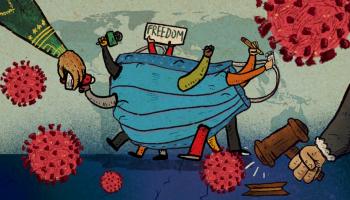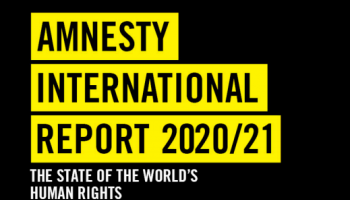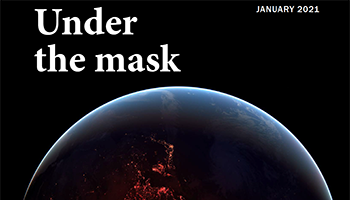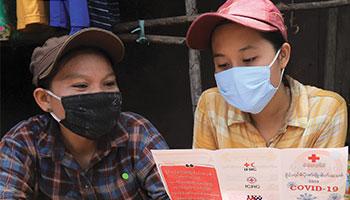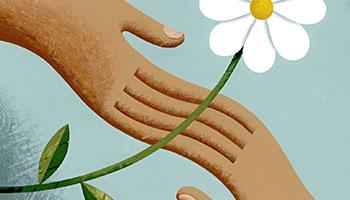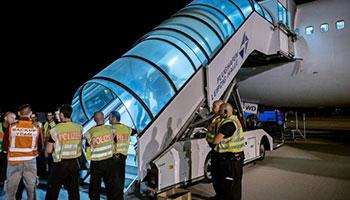Militarized borders during COVID-19
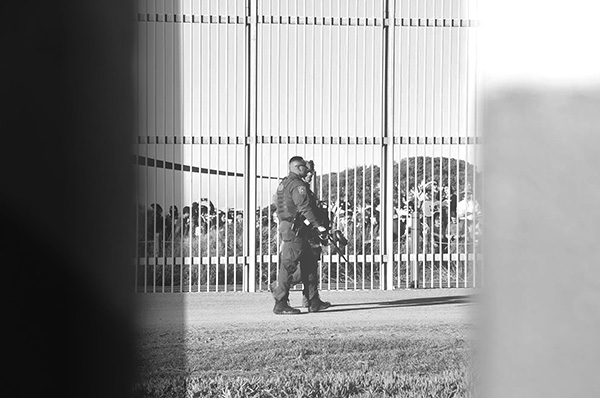
With the spread of COVID-19, there has been an increase in policing, patrolling, and militarization of borders. Further, governments often use racist, xenophobic rhetoric to justify tighter restrictions of movement on migrant communities and refugees. “Border closures and lack of political will have trapped tens of thousands of migrants in Europe, North Africa and the Americas in an intolerable limbo, often without access to critical support to meet their most basic needs and stay safe,” said Franceso Rocca, president of the International Federation of the Red Cross / Red Crescent (see the IFRC report "Migrants and refugees 'least protected, most affected' in COVID crisis").
Even before the pandemic, right-leaning governments have presented migration and open borders as a threat. Now governments are increasingly portraying migrants as carriers of the virus—using fearmongering tactics to push for further border militarization. In fact, it needs to be recognized that migrants become a risk because they are put at greatest risk. In Zimbabwe, refugees are stigmatized and scapegoated for bringing the virus into the country. In the United States, reports of anti-Asian attacks and harassment are on the rise. There have also been several xenophobic attacks in South Africa.
The exclusion of migrant workers from governments’ COVID-19 response programs—or the implementation of programs aimed at restricting their mobility in the interests of protecting nationals—results largely from xenophobic sentiments and systems. It also reinforces public perceptions that migrant workers pose a risk, rather than being at risk. This in turn heightens migrant workers’ precarity and vulnerability to health risks—resulting in a vicious cycle of precarization and xenophobia. (see the report "Quarantined! Xenophobia and migrant workers during the COVID-19 pandemic").
For decades, Europe and the United States have pushed their own borders farther away by encouraging neighboring countries to close their borders. The European Union has supported refugee camps in Turkey and North Africa, and the U.S. has supported the militarization of Mexico’s southern border with Latin America—leading to a large number of refugees and migrants now facing the pandemic in what’s known as “third party” countries. These refugee camps and other migrant areas are especially vulnerable to the virus due to dense populations, which make social distancing virtually impossible; poor hygienic conditions; and limited access to health care.
Civil society has stepped up to support migrants in places like Malaysia, where community groups mobilized to provide food to migrant workers, many of whom had lost their income and were excluded from receiving government aid. To stand with migrants and refugees detained in Greece, the migrant solidarity group Seebrücke, Germany called on people around the world to paint their footprints or leave shoes in front of state institutions.
To adequately address the pandemic, there must be a holistic response to this public health crisis that looks at economic, social, and health considerations, as well as the needs of all parts of society. Border issues need to be addressed regionally by bodies such as the African Union, the European Union, and Economic Community of West African States to develop policies that recognize our shared humanity and enable all people to move in safety and with dignity. Borders are a joint concern.
Our recommendations
- Any individual can petition their government to counter xenophobia by using best practice guidance from the International Organization for Migration and to adopt the key recommendations for countering xenophobia and racism toward migrant workers during and after the pandemic (see the report "Quarantined! Xenophobia and migrant workers during the COVID-19 pandemic").
- Civil society actors can create Community Action Networks to address militarized borders and other issues. See guidance and case studies here.
- Civil society organizations can engage with the Regional Migration Reviews to improve the promotion and protection of the rights of migrants. To learn more, see this resource for migrants, nongovernmental organizations, and other stakeholders.
COVID Report: Year One
One year into the COVID-19 pandemic, restrictions on civil space are increasing. Recognizing the need to protect public health, our report looks at nine kinds of restrictions that could limit civil space for the long term and how civil society can respond.
Regions currently impacted
Get in Touch
Under the Mask is an evolving project dedicated to the alarming increase in restrictions on civic space around the world, worsening during the COVID-19 pandemic, and how individuals and organizations are responding to protect that space. We welcome your feedback about this website, and we invite you to participate in this collective effort.
